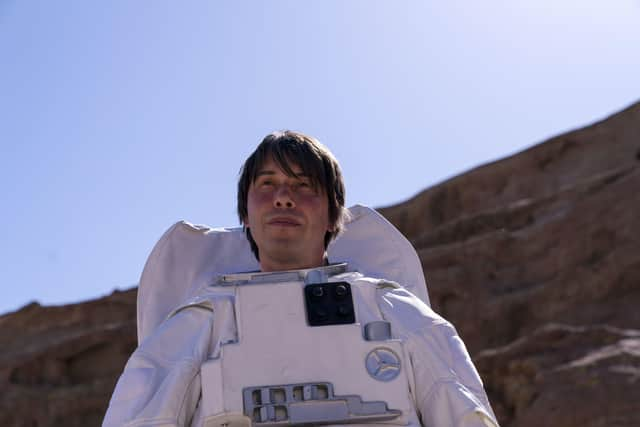Brian Cox witnesses ‘Seven Days on Mars’
and live on Freeview channel 276
Just over a year after touching down on Mars, NASA’s Perseverance rover has reached a crucial moment in its mission to find out if life ever existed on the Red Planet.
But as ‘Percy’ strikes out at top speed, traversing jagged terrain on a hostile planet 300million kilometres away from the Earth, the team driving, operating and monitoring the rover must overcome some epic challenges.
Advertisement
Hide AdAdvertisement
Hide AdIn 1980, a young Brian Cox wrote to the Jet Propulsion Laboratory (mission control for Mars 2020) asking for photos from some of their earlier missions to the planets. The pictures they sent him from Voyager and the Viking mission to Mars were a source of inspiration and helped set Brian on the path to becoming a physicist.


Now, over 40 years later, the professor of particle physics at the University of Manchester has been granted privileged access to the JPL in Pasadena, California.
This programme follows him over the course of a week as he witnesses the six-wheeled rover’s every move. Brian will see the workings of the Mars 2020 mission as it guides Perseverance and the Ingenuity helicopter (the first powered aircraft to have ever been sent to another planet), on and above the surface of Mars.
We will see the rover navigating its way across the floor of Jezero Crater towards the remains of an ancient river delta – that may contain the evidence of life. He will come face to face with the engineering models of both the helicopter and the rover as they are put through their paces in JPL’s Mars Yard – a simulated Martian landscape used by the research and flight projects to test different robotic prototypes.
Advertisement
Hide AdAdvertisement
Hide AdAnd he will join the drivers whose job it is to plot the rover’s complicated route through the hazardous terrain of the Martian surface.
In the process of all this, Brian will also explain to viewers how the mission could radically change our understanding of life – not just on Mars, but Earth as well.
After all, if NASA’s team succeeds in its mission, they will transform our knowledge of life in the universe and redefine humanity’s future.
“The nature of origin of life is one of the great unanswered scientific questions,” Brian says. “Here on Earth, life was present around 3.8 billion years ago, but the evidence for how it arose has been weathered away and erased by the geological activity of our planet.
Advertisement
Hide AdAdvertisement
Hide Ad“Mars, however, is a different story. It was decidedly Earth-like at the same time, with rain, rivers and lakes, but it soon entered a geological deep-freeze from which it never emerged. If there were Martians, the evidence for their emergence from the geology and chemistry of a young, active world may be far better preserved. The Perseverance Rover, and the Mars Sample Return missions to follow, may therefore answer a deeper question even than ‘Is there life on Mars?’ They may reveal how life begins across the Universe, including here on Earth, and give us unique insight into our own origins.”